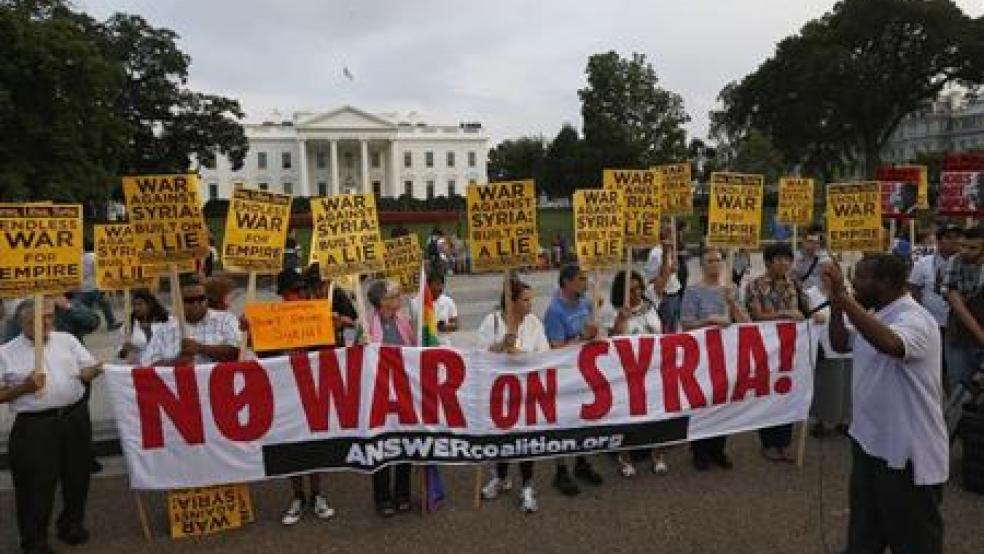WASHINGTON (Reuters) - Most Americans still do not want to intervene in Syria's civil war, although support for such action has increased since the suspected chemical gas attack near Damascus last week, according to a new Reuters/Ipsos poll.
The poll made clear how much work President Barack Obama has to do to win support for military action from a war-weary public as he makes the case that Syrian President Bashar al-Assad should be held responsible for the attack that the United States says killed more than 1,400 people.
Some 53 percent of those surveyed this week said the United States should stay out of Syria's civil war, down from 60 percent last week. Just 20 percent said the United States should take action, but that was up from 9 percent last week.
When asked whether the United States should intervene if Assad's government used chemical weapons on civilians, 29 percent of Americans said yes - up from 25 percent last week - while 44 percent opposed intervention even if chemicals have been used, down from 46 percent last week.
Support for U.S. involvement is not likely to climb much higher before any military action because most Americans are now fully aware of the situation in Syria and likely have made up their minds about it, Ipsos pollster Julia Clark said.
The Reuters/Ipsos online poll of 708 adult Americans was conducted Monday through Friday this week. It has a credibility interval, similar to a margin of error, of plus or minus 4.2 percentage points for each result.
Obama's administration has made clear that it will punish Assad for the attack, even as prominent allies such as Great Britain have resisted participation in any military operation.
But many Americans remain deeply reluctant to engage in further conflicts after more than a decade of expensive and inconclusive wars in Iraq and Afghanistan.
"Every time we get involved in somebody else's mess, we just get deeper in debt and nothing happens. They go right back to being just exactly as they've been for 200 years," said Dolly Benson, 71, of Romance, Arkansas.
The Obama administration says any strike would be limited in scope and would not in any way resemble the U.S. invasions of Afghanistan or Iraq.
"We know that after a decade of conflict, the American people are tired of war. Believe me, I am, too," U.S. Secretary of State John Kerry said on Friday. "But fatigue does not absolve us of our responsibility. Just longing for peace does not necessarily bring it about."
The poll was taken before Secretary of State John Kerry released on Friday an unclassified intelligence report that he said presented detailed evidence that Assad's forces were behind the attack.
Those surveyed in the poll were more likely to support action when they were specifically asked about chemical weapons, which are outlawed under international treaty. Obama has made limiting the spread of chemical, nuclear and other weapons of mass destruction a cornerstone of his foreign policy.
Even those who supported a U.S. intervention said they were worried that military action could further inflame a volatile region and expose the United States and its allies to a range of risks, including retaliation from Syria or its allies.
"It's a slippery slope; we have to tread lightly," said Baruch Jabbarr, 60, of Brooklyn, New York. "But I'm all for intervention because something has to be done."
(Editing by David Lindsey and Jackie Frank)


